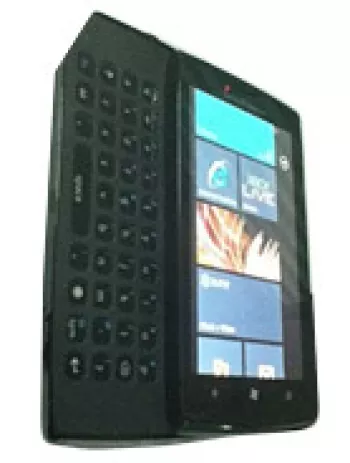Sony Ericsson Windows Phone 7 Specs Pricing Pros & Cons Unveiled

Overview of the Sony Ericsson Windows Phone 7
The Sony Ericsson Windows Phone 7 was a proposed device that was never officially announced or released. Although it didn’t make it to the consumer market, it was expected to combine Sony Ericsson's sleek design expertise with the functional and user-friendly capabilities of the Windows Phone 7 operating system. Below is a comprehensive exploration of its features and anticipated performance.
Network Capabilities
The device was expected to support GSM and HSPA technologies, providing decent connectivity options for its time. Given the network standards, it was aimed at being compatible with global 2G and 3G network bands. This included support for GSM bands at 850, 900, 1800, and 1900 MHz, as well as HSDPA bands at 900 and 2100 MHz, promising satisfactory call quality and data communication speeds through HSPA technology.
Design and Build
Although the exact dimensions and weight were not available, the phone was designed to include a QWERTY keyboard, differentiating it from touch-only smartphones. This feature would have made it particularly attractive to business users and those preferring physical keyboards for texting and emails. The use of a Mini-SIM and a proposed black color scheme suggested a classic, understated design aesthetic.
Display
The device was to feature a TFT display, known for providing vibrant colors, albeit with some limitations under direct sunlight. Unfortunately, specific details regarding the screen size and resolution remain unknown. Still, the integration of a TFT display indicated a focus on delivering a quality viewing experience that was sufficient for browsing, multimedia consumption, and general app use.
Operating System and Performance
Running on the Microsoft Windows Phone 7 operating system, the device was tailored for those who valued an interface focused on usability and productivity. This OS was known for its live tiles interface, seamless integration with Microsoft services, and efficient navigation. Details about the processor and RAM weren't specified, yet the performance was anticipated to support typical smartphone functions smoothly, reflecting the technology standards of the early 2010s.
Camera and Multimedia
The Sony Ericsson Windows Phone 7 featured a main camera with a 5-megapixel sensor, expected to deliver clear, quality photos for everyday use. Video recording capabilities were present, although further specifications were not provided. For multimedia, the device was equipped with a loudspeaker and a 3.5mm jack, allowing for versatile audio output options suitable for music and hands-free calls.
Connectivity and Communication
The phone provided a robust set of connectivity features. Wi-Fi support at standards 802.11 b/g/n facilitated reliable internet connection, while Bluetooth 2.1 with A2DP allowed for wireless data transfer and headset connections. GPS with A-GPS supported location-based services, enhancing navigation capabilities. Additionally, it included a stereo FM radio with RDS and a microUSB 2.0 port, ensuring both connectivity and charging options were well-covered.
Additional Features
Leveraging an accelerometer sensor, the device could enhance user interaction through motion-based controls and applications. The browser capability supported HTML and Adobe Flash, indicating a more versatile browsing experience compared to many contemporary competitors that faced limitations in Flash support. These specifications reflected an ambition to create a device that could cater to both everyday and advanced user needs.
Battery and Power
The device was designed to house a removable Li-Po battery. While specifics about its capacity and talk time were unspecified, the removable nature of the battery suggested a design philosophy aimed at easy maintenance and the possibility of carrying spare batteries for extended use—an appealing feature for power users or travelers.
Conclusion
The Sony Ericsson Windows Phone 7 was a potential entry into the competitive smartphone market of its time. With a mix of hardware features aimed at productivity enthusiasts, and a powerful operating system promising smooth user interaction, it was unfortunate that this device was canceled before official announcement or manufacturing. Today, it remains a curiosity within the annals of mobile technology—a reminder of the innovation and diversity of ideas characteristic of the early smartphone era.
Key Features of Sony Ericsson Windows Phone 7
- Supports GSM/HSPA technology for wide network compatibility
- Equipped with a QWERTY keyboard for easy typing
- Runs on Microsoft Windows Phone 7 OS
- Includes a main camera and selfie camera with video capabilities
- Features a loudspeaker and a 3.5mm audio jack for versatile sound options
- Wi-Fi 802.11 b/g/n for high-speed internet connectivity
- Bluetooth 2.1 with A2DP for wireless communication
- GPS and A-GPS for accurate location tracking
- Stereo FM radio with RDS for entertainment
- Includes microUSB 2.0 for easy connection and charging
- Equipped with an accelerometer sensor for interface control
- Supports HTML and Adobe Flash for enhanced browsing
- Removable Li-Po battery allowing easy replacement
- Sleek design available in Black color
Disadvantages of Sony Ericsson Windows Phone 7
- Device was announced but never officially launched; status is cancelled.
- Lack of detailed information regarding dimensions and weight.
- Display size and resolution are unspecified.
- No expandable storage option due to the absence of a memory card slot.
- Main and selfie camera specifications are vague with no detailed resolution or features provided.
- Uses an outdated Bluetooth version (2.1).
- Older operating system (Windows Phone 7) which may lack modern app support and updates.
View Also
More Phones
All Rights Reserved +13924 Phones © Mobilawy 2025

























